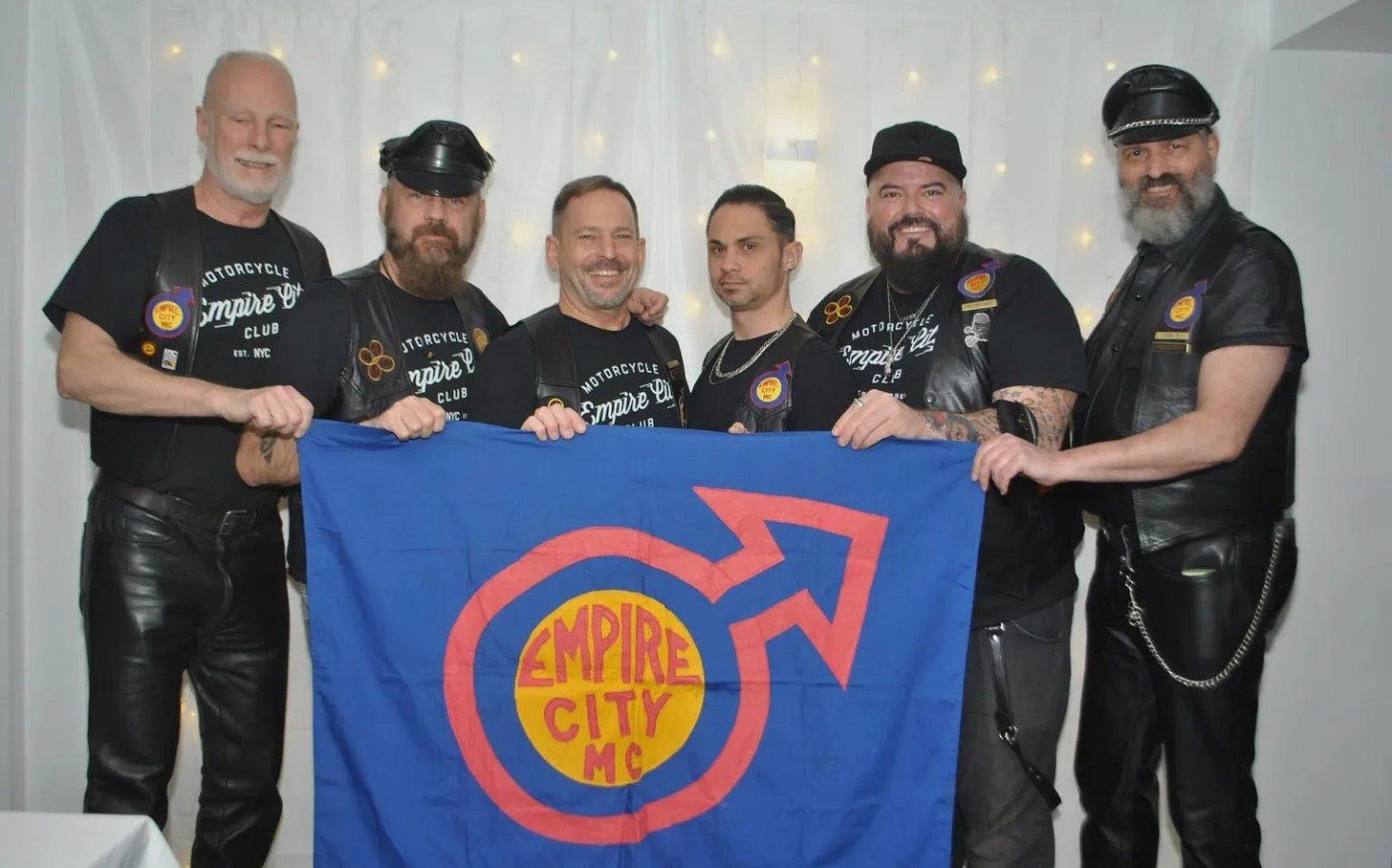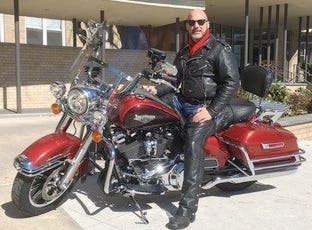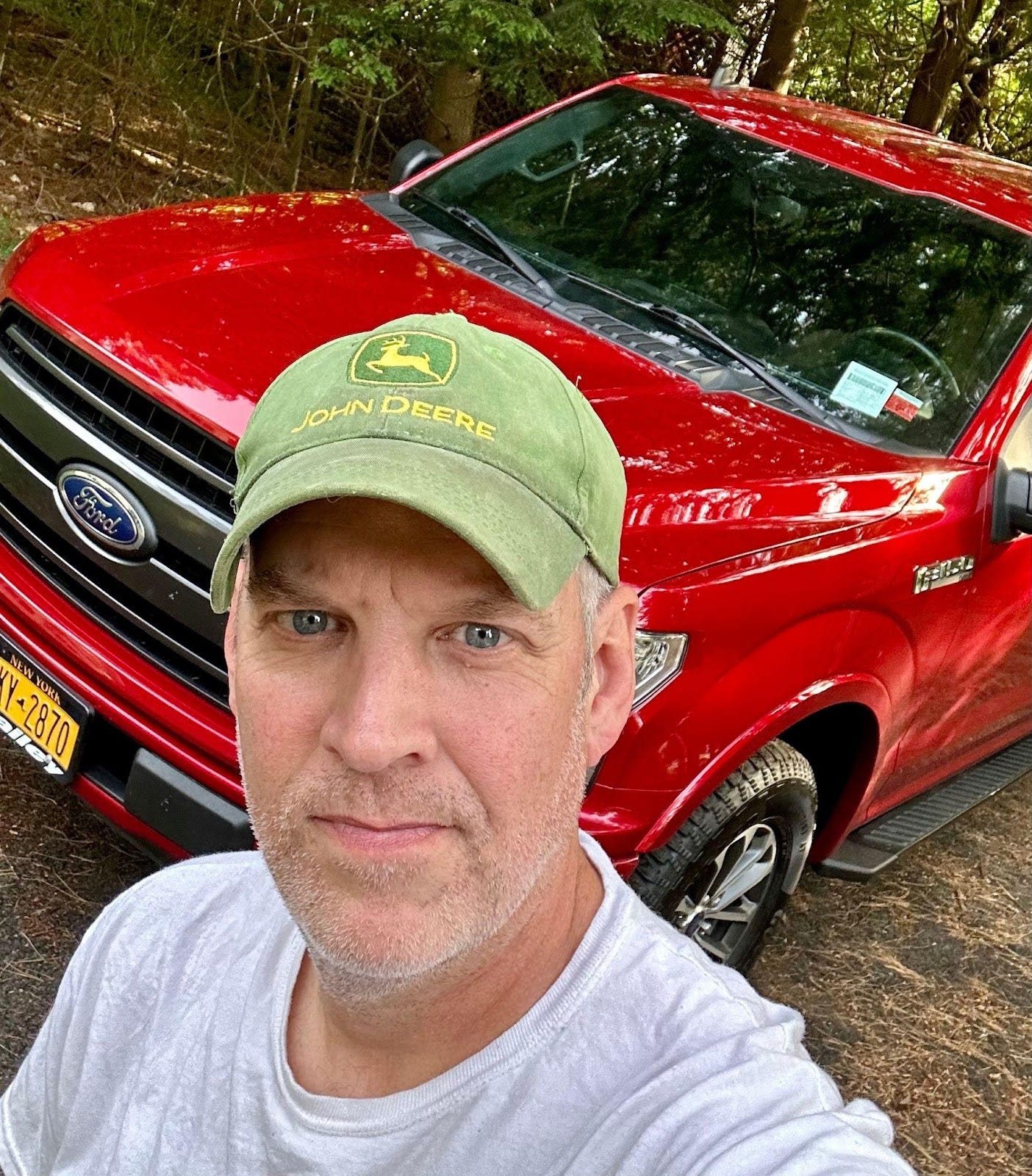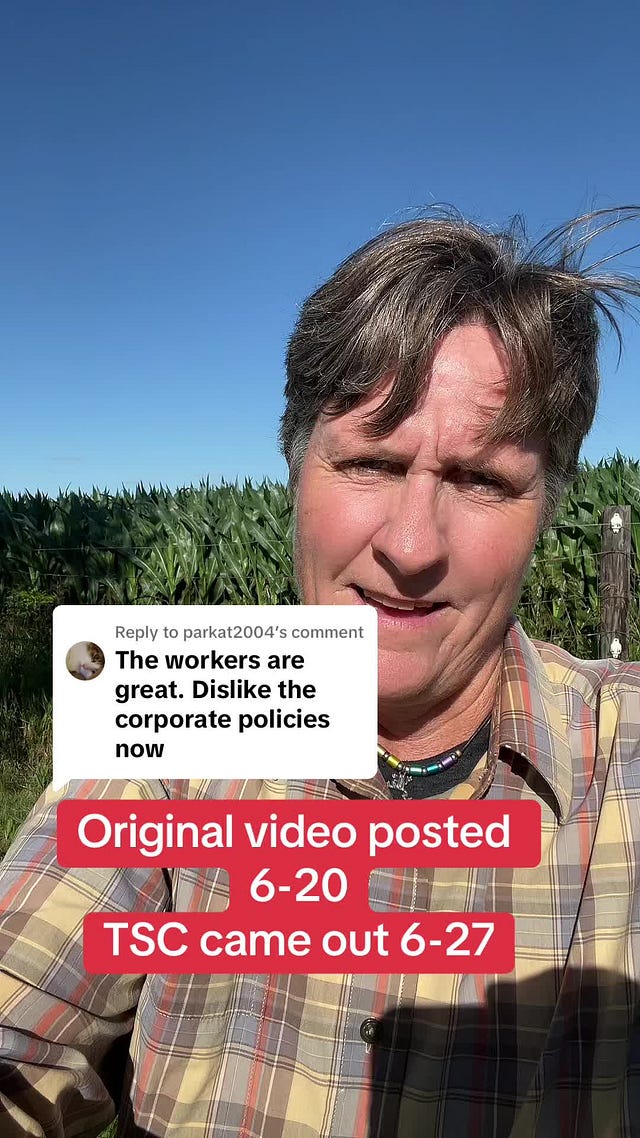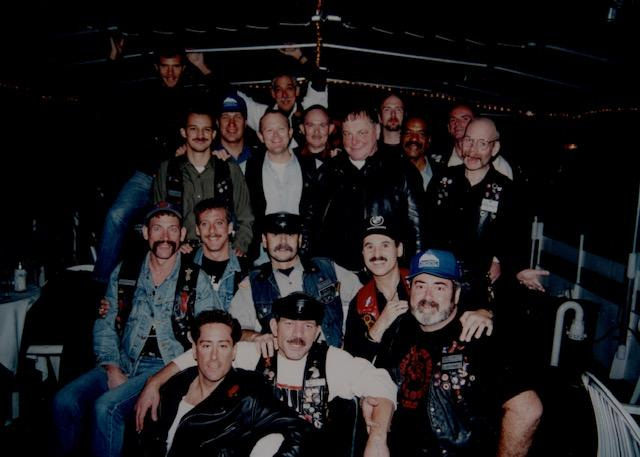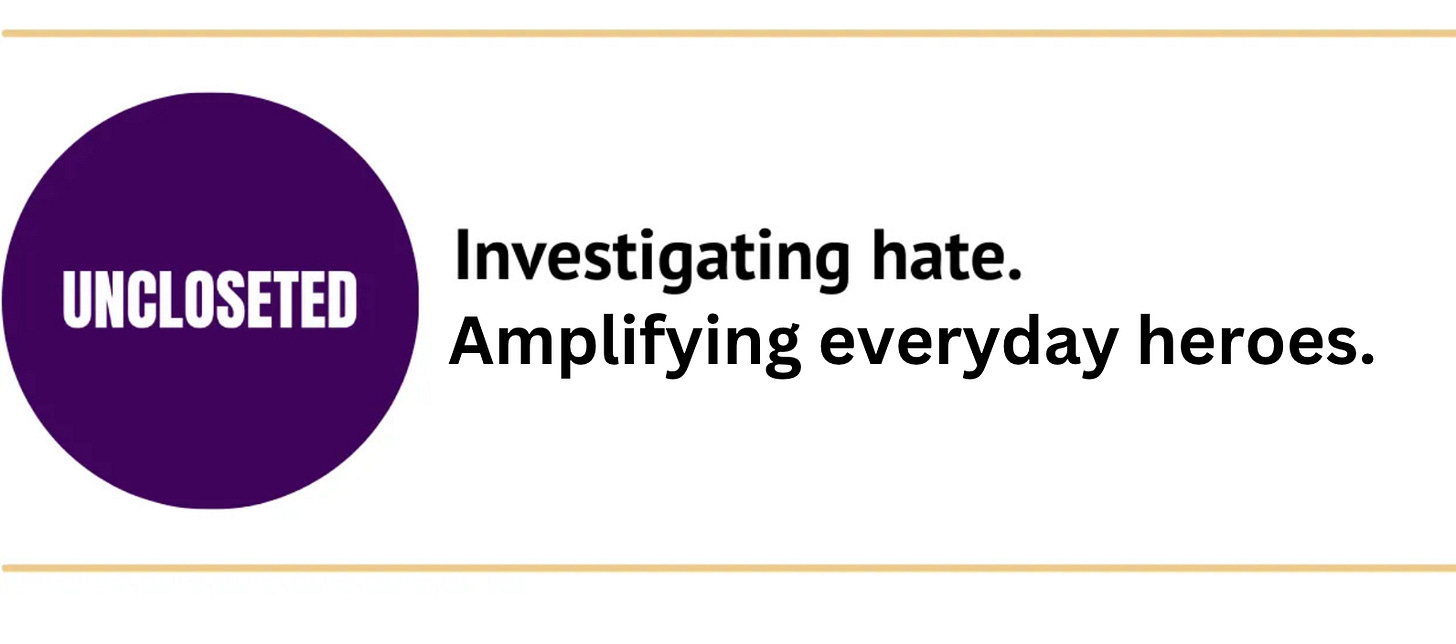In a Post-Bud Light World, How Running Away from the LGBTQ Community Could Impact Companies' Bottom Line
The Empire City Motorcycle Club in New York says they are the oldest gay biker club in the country. The group formed in 1964 when homosexuality was still considered a mental illness. Chaz Antonelli, who has been spending time with the club since 1989, was excited to buy a Harley-Davidson this year. “There is such an impression by owning and riding a Harley. It is so world renowned,” Antonelli told Uncloseted Media.
However, in August of this year, many Harley riders turned their backs on LGBTQ bikers like Antonelli when a social media campaign detailed the company’s investment in Diversity, Equity and Inclusion (DEI) and other LGBTQ issues. Riders shared their disappointment online, covered up their Harley logos, boycotted Harley’s booths at major motorcycle events and even blew up their Harley bikes with both guns and cannons.
This backlash pressured the company to further roll back on many of its DEI policies. Since then, Antonelli has decided he won’t be buying a Harley. “I actually had a panache for the Harley-Davidson ultra. They lost a $40,000 sale because of this,” he says.
Harley-Davidson is one of many companies that have abandoned their public DEI commitments this year following a string of anti-woke campaigns. Ford Motors, John Deere, Lowe’s, Tractor Supply Co and other notoriously “American” companies have pulled out, giving their anti-woke consumers a win but alienating many of their LGBTQ customers and allies to the community.
DEI policies—which are broadly defined as workplace programs that promote the fair treatment of all people and especially populations that have been subject to discrimination—vary widely. But the policies these companies pulled back on are primarily ones that add protections for the LGBTQ community.
Harley-Davidson, Lowe’s, Tractor Supply, Jack Daniels, Molson Coors, Ford Motors, and Caterpillar Inc pulled out of the Human Rights Campaign’s Corporate Equality Index, which tracks corporate treatment of LGBTQ employees and is widely recognized as a litmus test for how LGBTQ friendly a company is. John Deere joined other companies in issuing policy reversals including disinvestment in Pride parades and the removal of LGBTQ employee trainings and diversity quotas.
While the LGBTQ community holds $1.4 trillion in spending power and a reported 80 percent of LGBTQ adults say they would boycott a company that rolls back DEI initiatives, these corporations have not yet faced significant monetary loss. “Those of us who insist that we have moral principles to drive our consumer decisions are probably better at expressing those principles than acting on them,” says Bruce Barry, Professor of Management at Vanderbilt University with an expertise in ethics and social issues. “I’m opposed to sweatshop labor as much as anybody, but does that stop me from going to Target and buying a $10 T-shirt sometimes?”
While bottom lines haven’t been hit, there are significant non-monetary losses to LGBTQ employees and customers of these companies, many of which are based in U.S. states where political animus is high and LGBTQ people are being stripped of their rights. “I think our community feels less safe than it has in a long time, and that's for legal reasons with all the anti-LGBTQ bills,” says Michael Wilke, the Founder of AdRespect, an ad company that promotes diversity for a more accepting society and better business results.
“For those who work in the few companies that we're talking about, I think they cannot feel safe anymore. That's one of the reasons companies passed policies that are inclusive in the first place,” he says.
It is still unknown how these rollbacks will affect the lives of those working within these corporations. “I suppose the real proof will be ‘what lines will Harley cross?’” says Antonelli. “When someone who is born female who identifies as male who works on the assembly line walks into the men’s bathroom, how will they react when a man complains or vice versa? … We need to know what Harley is going to do with their employees and with their customers and that’s not been answered.”
Harley-Davidson did not respond to Uncloseted Media’s request for comment, however in a statement the company released on August 19, they said they were “saddened by the negativity on social media.” They went on to say, “It is critical to our business that we hire and retain the best talent and that all employees feel welcome,” but they confirmed that they “have not operated a DEI function since April 2024 and [they] do not have one today.”
Another member of Antonelli’s biker club, Mark Baker, is concerned for LGBTQ employees who feel like they don’t have enough financial or job security to speak out. “I can imagine that the big blue collar worker on the floor who’s actually manufacturing the motorcycles is probably the one who most needs some of those protections in the workplace and I worry where that’s going to put them,” he says.
The recent storm of DEI rollbacks is occurring one year after Bud Light lost its position as the nation’s top-selling beer due to conservative backlash to the company’s partnership with transgender social media influencer Dylan Mulvaney.
In April 2023, Bud Light became the center of a firestorm of online transphobia against Mulvaney. This included threats of violence against both Mulvaney and Bud Light headquarter locations. Kid Rock posted a video shooting Bud Light cans with an assault rifle and country music legend Travis Tritt requested that Bud Light not be offered at his shows. Republican politicians Ron DeSantis and Vivek Ramaswamy condemned the brand's decision and further stoked the public’s reaction to the marketing move.
Today, Bud Light—who never publicly apologized to Mulvaney—is still reeling from the boycott, dropping recently to the third highest selling beer in the nation and trying to regain its image through product placement in all-American ventures such as the recent blockbuster film “Twisters”.
One year after Bud Light gate, right-wing influencer Robby Starbuck spearheaded this new wave of animus towards DEI policies. In a series of videos, Starbuck has informed his over 645,000 followers on X of traditionally American companies’ ‘woke’ policies. Starbuck teamed up with conservative nonprofit “Consumers’ Research”, which sends out “Woke Alerts” warning shoppers “to avoid products from companies accused of catering to the woke agenda.” These videos spurred online chatter from conservative influencers and customers alike, creating a wave of pressure that eventually pushed these companies to repeal their policies.
Consumers Research did not respond to a request for comment. While Starbuck declined an interview with Uncloseted Media, he confirmed through his assistant, Lindsay Logan, in an email that he will continue to expose more companies and that they should be worried. “Many more [companies] will be making announcements in the future,” he said. “We’re absolutely impacting DEI policy in corporate America and that will only continue.”
Barry says it was quite amazing that some of these companies “just caved” from one “crusader against wokeness.”
“The whole DEI industrial complex has managed to sort of give itself a bad name with the help of some idiots like this guy Robby Starbuck,” he says.
But Starbuck isn’t operating alone. There is a groundswell of conservative influencers, like Jeffrey Bernhard, who are sharing the same message. “The only voice we have is our money,” Bernhard, who has nearly 150,000 followers on TikTok, told Uncloseted Media. “We vote with our feet and talk with our money.”
Bernhard attributes the rollback of these policies to companies panicking about becoming another Bud Light. “They’re like, ‘Oh my God, we’ve pissed off all of our base, what do we do?’” he says. “Everybody is gangster until it’s time to do gangster stuff. Everybody wants to be DEI until they start losing this money.”
Bernhard is still boycotting Bud Light and judging those who are standing with the brand.
“When I’m at the grocery store and I see somebody with a 12 pack of Bud Light and they’re holding it, I check them out. Like, ‘Who is this guy?’” he says. “They must not have gotten the memo. Nobody buys Bud Light anymore.”
Uncloseted Media reached out to Bud Light for comment but they did not respond.
While right-wing influencers like Bernhardt may not be impacted directly by these DEI policy reversals, they have more personal implications for LGBTQ people who work for these companies. The Human Rights Campaign found that 72 percent of LGBTQ adults would feel less included/accepted at work if their company rolled back DEI.
Joe Montello, a gay man who worked as a manager at Tractor Supply for over six years, quit after hearing about his company's policy shift. After reading his company’s official announcement and taking calls from LGBTQ customers informing him that they would no longer be able to shop at the store, he knew he had to leave. “I’m not an activist or anything like that,” Montello told Uncloseted Media. “I used to wear my Tractor Supply hat to work and I wore a John Deere hat when I was off work. I threw both in the garbage,” he added.
Tractor Supply did not respond to a request for comment. In their statement announcing the changes June 27, the company said they “will continue to listen to [their] customers and Team Members. Your trust and confidence in us are of the utmost importance, and we don’t take that lightly.”
Montello says one reason he quit was because of his memories as a closeted 18-year-old during the AIDS crisis when he would hear the way politicians and religious leaders would talk about the LGBTQ community. He remembers religious figurehead Jerry Falwell claiming that “AIDS is the wrath of a just God against homosexuals” and President Ronald Reagan’s refusal to acknowledge the epidemic until four years had gone by and 5,000 people—mostly gay men —had died.

“When someone is in a position of power, like the CEO or president, people feel like they’ve been given permission to then act on their own prejudices,” he says. “I know how hard it was for me. I was suicidal for a number of years. I don’t want that to happen to anyone young,” he says. “So I decided to take a stand and that was it.”
Explicit anti-LGBTQ animus is reflective of a rhetoric in American politics that has ratcheted up in the last few years. Former president Donald Trump has said we need to stop “left-wing gender insanity” and in September released an attack ad on the Harris campaign where he criticized his Democratic opponent, saying “Kamala is for they/them, Trump is for you.”
“People are saying the quiet part out loud a lot more,” says Wilke. “Words matter. And the Trump presidency and everything since then that he's touched has had an impact on this. There's an empowerment for bigotry. And people are more open, if not proud again, about feeling that way. And we're seeing it more publicly.” says Wilke.
Jeffrey Bernhard— who runs a leather goods company where he sells concealed carry purses that are “100 percent Nicaraguan”--- is outraged because he believes “the DEI departments [are] only hiring minorities.”
“How is it possible that we have Americans sleeping under bridges and then we have these new migrants coming in that have free healthcare, free dental, all run by the [Department of Veterans Affairs] (VA)? I think the American people are pissed off about this so when they see that they’re doing these diversity hires it’s almost like the Americans are the enemy of the people,” says Bernhard, who spends half of the year living and running his business out of Nicaragua.
Despite Bernhard’s concerns, DEI is largely unrelated to migrant access to healthcare or dental care, which the VA has said they don’t actually pay for. “They're jumping into this anti-woke thing, I think in the way they were talking about it is very clear to me that they had absolutely no idea what DEI in the workplace means,” says Mark Baker, a member of the Empire City Motorcycle Club and a senior Vice President of corporate communications.
For Vanderbilt University Professor of Management Bruce Barry, DEI is about representation and equity for all groups. “It’s just making you a better citizen of your community and serving your shareholders better,” he says.
While many companies bolstered their support and investment in DEI departments following the Black Lives Matter movement in 2020, some customers are unsurprised that they have gone back on their commitments. Lesbian farmer turned influencer who often shopped at Tractor Supply, Jen Rowray—or “Cowboy Jen” on TikTok—told Uncloseted Media this is not her first rodeo dealing with disappointing corporate policy. “I’ve learned through years of activism that corporations are in it to make money.”
“We have to ask ourselves why they supported Pride and did DEI. Were they really like ‘Oh my God, we love gay people?’ No. They saw a PR opportunity and saw that this was what the wave was,” she says. “But eventually that wave crashes and the other side gets wind and they immediately say ‘nevermind’.”
In many rural parts of the U.S., Tractor Supply has become the only option for many farmers. Because of this, many queer farmers have no other choice but to continue shopping there.
In addition to alienating their customer base at large, Michael Wilke of AdRespect warns that in the long-run, it’s in the best interest for American companies to stand with the LGBTQ community. A 2024 Gallup poll found that more than 1 in 5 Gen Z adults identify as LGBTQ.
“It's not a good idea to walk away at this time from Gen Z and from millennials,” says Wilke. You have to look at your future audiences as much as your current audiences, and to fail to do so is at your own business risk.”
For Harley-Davidson, some of the LGBTQ members of their current customer base are taking note.
“How do we, as the LGBTQ community, let people know that we might be a bigger cash cow than the noisy bigots that are being listened to right now,” says Ronald Keeny, member of Spartan Motorcycle Club. “As a Harley owner, I can’t do anything about the money that I’ve already spent. But I can do something about the money I have to spend.”
If objective, nonpartisan, rigorous, LGBTQ-focused journalism is important to you, please consider making a tax-deductible donation through our fiscal sponsor, Resource Impact, by clicking this button:



